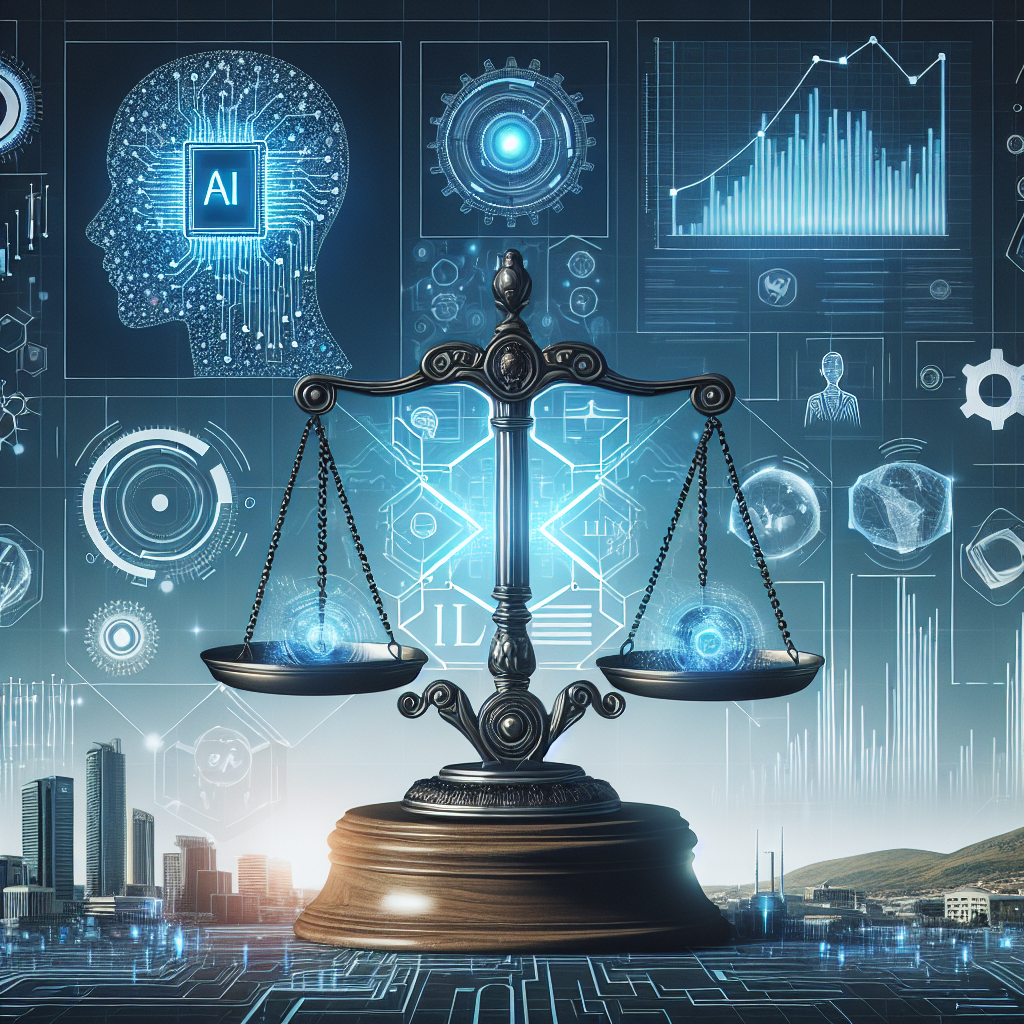AI-Powered Legal Predictions: Forecasting Legal Trends and Developments
In recent years, artificial intelligence (AI) has made significant advancements in various fields, including the legal industry. AI-powered legal predictions have become a valuable tool for lawyers, legal professionals, and even individuals seeking legal advice. By analyzing vast amounts of data and identifying patterns, AI can forecast legal trends and developments with a high degree of accuracy. This article explores how AI is revolutionizing the legal industry and the benefits of using AI-powered legal predictions.
How AI is Revolutionizing the Legal Industry
AI has the potential to transform the legal industry in numerous ways. One of the most significant advancements is the ability of AI to analyze and interpret vast amounts of legal data quickly and accurately. This includes case law, statutes, regulations, and legal opinions. By processing this data, AI can identify trends, patterns, and insights that can help lawyers make more informed decisions.
AI-powered legal predictions also enable lawyers to predict the outcome of legal cases with a high degree of accuracy. By analyzing historical data and trends, AI can assess the likelihood of success or failure in a legal matter. This can help lawyers develop better strategies and make more informed decisions for their clients.
Moreover, AI can help lawyers streamline their workflow and increase their efficiency. By automating repetitive tasks, such as legal research and document review, AI can free up time for lawyers to focus on more complex and strategic work. This can lead to cost savings for law firms and improved outcomes for clients.
Benefits of Using AI-Powered Legal Predictions
There are several benefits to using AI-powered legal predictions in the legal industry. Some of the key advantages include:
1. Improved Decision-Making: AI can provide lawyers with valuable insights and predictions that can help them make better decisions for their clients. By identifying patterns and trends in legal data, AI can help lawyers assess the strengths and weaknesses of their case and develop more effective strategies.
2. Cost Savings: AI can help law firms reduce costs by automating repetitive tasks and increasing efficiency. This can lead to lower overhead costs and higher profitability for law firms.
3. Faster Legal Research: AI can quickly analyze vast amounts of legal data and provide lawyers with relevant information in a fraction of the time it would take a human researcher. This can help lawyers save time and focus on more critical tasks.
4. Increased Accuracy: AI-powered legal predictions are based on data and algorithms, which can provide more accurate and reliable results than human intuition alone. This can help lawyers make more informed decisions and improve the outcomes of legal cases.
5. Competitive Advantage: By using AI-powered legal predictions, law firms can gain a competitive advantage in the legal industry. By leveraging AI technology, law firms can deliver better results for their clients and differentiate themselves from competitors.
FAQs
Q: How accurate are AI-powered legal predictions?
A: AI-powered legal predictions are highly accurate, with some studies showing accuracy rates of over 90%. However, it is essential to note that AI predictions are based on historical data and trends and may not always reflect the outcome of a specific case.
Q: Can AI replace lawyers in the legal industry?
A: While AI can automate certain tasks and improve efficiency, it is unlikely to replace lawyers entirely. Lawyers bring a unique set of skills and expertise to the table that AI cannot replicate, such as critical thinking, creativity, and empathy. AI is best used as a tool to augment and enhance the work of lawyers, rather than replace them.
Q: How can lawyers incorporate AI-powered legal predictions into their practice?
A: There are several ways lawyers can incorporate AI-powered legal predictions into their practice. This includes using AI tools for legal research, case analysis, and predicting case outcomes. By leveraging AI technology, lawyers can improve their decision-making, streamline their workflow, and deliver better results for their clients.
In conclusion, AI-powered legal predictions are revolutionizing the legal industry by providing lawyers with valuable insights and predictions that can help them make more informed decisions. By analyzing vast amounts of legal data and identifying patterns, AI can forecast legal trends and developments with a high degree of accuracy. The benefits of using AI-powered legal predictions include improved decision-making, cost savings, faster legal research, increased accuracy, and a competitive advantage. While AI is unlikely to replace lawyers entirely, it can augment and enhance their work, leading to better outcomes for clients and a more efficient legal practice.

